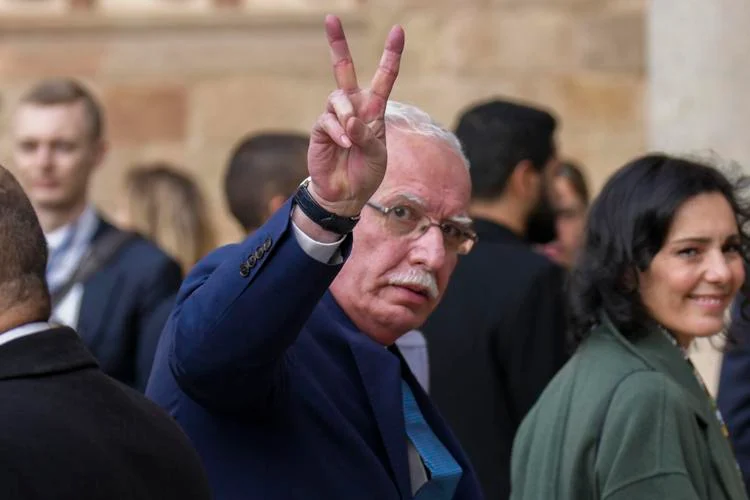As the Gaza ceasefire between Israel and Hamas hangs in the balance, the top Palestinian diplomat, Riad Al-Maliki, appealed for a definitive end to Israel’s retaliatory attacks during a meeting between European Union members and Arab nations in Barcelona, Spain. Al-Maliki emphasized the urgency of applying pressure to prevent further Israeli actions, expressing concerns about the potential for more casualties. The meeting, hosted by the Union for the Mediterranean and chaired by the EU’s foreign policy chief, Josep Borrell, provided a platform for dialogue amid rising tensions in the region.
Al-Maliki, the foreign minister for the internationally recognized Palestinian Authority, warned of the dire consequences of a resumption of hostilities by Israel, emphasizing the need for a lasting peace. The meeting took place just hours before Israel and Hamas agreed to a two-day extension of the expiring ceasefire, offering a temporary reprieve.
Israel chose not to attend the gathering, where many of the 43 delegations were represented by their foreign ministers. While the meeting did not yield major policy initiatives, it allowed for direct communication between European diplomats and nations supporting the Palestinian cause. Borrell expressed regret over Israel’s absence, condemning the Hamas attack but also urging Israel to permanently end its assault.
Jordan’s Foreign Minister Ayman Safadi, optimistic about bridging gaps between Arab and European countries, called for support for a two-state solution recognizing a Palestinian state. However, he acknowledged differing viewpoints on how strongly to push Israel to halt its actions. Safadi characterized the conversation as open and frank, revealing varying stances on Israel’s right to self-defense.
Saudi Arabia’s Foreign Minister, Prince Faisal bin Farhan Al Saud, was invited to the event, emphasizing the risks of continued escalation and the need for a strategic imperative for peace in the Euro-Mediterranean community. Borrell envisioned the meeting focusing on managing the humanitarian crisis in Gaza once hostilities cease.
Despite Israel’s absence and the differences in approach among participating nations, the meeting highlighted the international community’s collective interest in resolving the long-standing Israel-Palestine conflict. The call for peace resonates amid ongoing challenges, emphasizing the need for diplomatic efforts to achieve a lasting and just resolution in the region.















